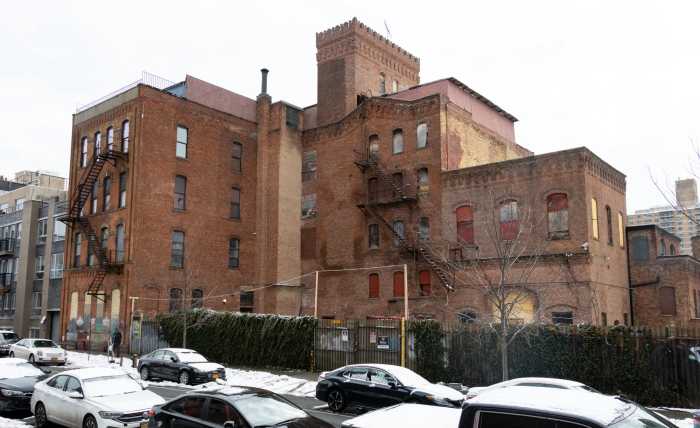They may be small in number, but they have a disproportionate influence over environmental conservation in Brooklyn.
Members of the Department of Environmental Conservation law enforcement division outlined how they sniffed out, located and ultimately arrested environmental perpetrators who allegedly dumped raw sewage into Newtown Creek which led to an 81-count indictment and millions of dollars in fines.
“I don’t give compliments very easily, especially to agencies, but I do think the DEC has done an amazing job in this case,” said Greenpoint resident Laura Hofmann.
At a recent Barge Parks Pals meeting convened on February 18 at the Green Oaks Club (179 Green Street), DEC officer Lieutenant John Fitzpatrick detailed the challenges of tracking the source of environmental pollution in North Brooklyn with the limited resources at his disposal. There are only 25 Environmental Conservation officers in New York, and only six in Brooklyn, though Fitzpatrick said that they are busier than any other region in the state.
A look at their work over the past two months reveals why. On January 25 and 26, the division successfully executed a sweep of seafood markets and supermarkets, hauling in 492 pounds of illegal “blood clams” from stores in Brooklyn, Manhattan and Queens.
Two weeks earlier, District Attorney Charles Hynes announced an 81-count indictment, including 27 counts of prohibited discharge of Norman Holding LLC and its principal Jose Torres, 53, for allegedly dumping raw sewage from three commercial buildings, 251, 257, and 259 North Henry Street.
On June 19, state and city environmental officials examined a concrete facility at the bank of Newtown Creek for evidence of biological sheens on the waterway following a tip from a local resident, and returned three days later after a storm event to videotape the discharge.
After six months of investigations, state and city environmental officials concluded that the commercial properties owned by Norman Holding LLC had toilets and sinks that were not connected to the city’s sewer system. The company faces a fine of $75,000 per property, per day in violation, which totals to more than $2 million.
“We tested storm drains and found out that raw sewage was going directly into Newtown Creek,” said Fitzpatrick. “They were put on notice but they did not comply for several days.
According to DEC Regional Director Suzanne Mattei, state officials have knowledge of the area and are present often, but it takes a lot of manpower to monitor the area and it helps to have an active citizenry.
“The only solution is prevention,” said Mattei.
























